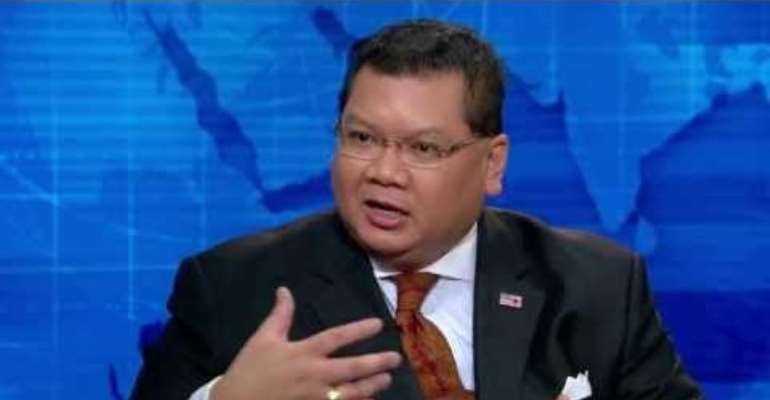Boko Haram: We have financial constraints, says US

Facts emerged on Wednesday at the US House of Representatives Committee on Foreign Affairs sub-committee hearing on the ongoing struggle against Boko Haram, that financial constraints are preventing the US in its efforts to help Nigeria tackle the insurgency.
Speaking at the hearing, Director of African Centre Atlantic Council, Dr. Peter Pham, noted that 'current strategic and budgetary' constraints would limit America's resources available for the fight against Boko Haram in Nigeria and other African countries.
He said, 'In the current situation, the desire to bring as fast as possible the trauma of the kidnapped girls to a happy end and, if possible, their abductors to justice, is understandable.
'However, we should be forthright in acknowledging that current strategic and budgetary constraints limit US resources available for commitments abroad in general and Africa in particular, and policymakers consequently need to carefully husband resources, prioritise engagements, and rely on complicated (and often messy) compromises in order to resolve conflicts and secure outcomes America can live with.'
Pham, however, lamented what he described as President Goodluck Jonathan's lackadaisical attitude toward the uprising of Boko Haram, which he said was the same attitude demonstrated by the late President Umaru Yar'Adua.
He said, 'Over the years the somewhat lackadaisical attitude that senior Nigerian officials have taken toward Boko Haram has been perplexing given that the group has made no secret of its goal, however unrealistic, of bringing down the Nigerian state itself.
'Yet the late President Umaru Musa Yar'Adua left for a state visit to Brazil right in the middle of the 2009 uprising and, only upon his return, set up a commission of inquiry.
'There are troubling indications—including Nigerian President Goodluck Jonathan's failure nearly two months after the kidnapping of the girls to yet visit the scene of the crime and this past week's half-hour-long interview with Stephen Sackur on BBC's 'Hard Talk' by tin-eared presidential senior advisor Doyin Okupe—that lack of engagement is still a problem.'
Speaking further, he said there was need for the US government to have diplomatic presence in the northern part of Nigeria.
'I would be remiss if I did not take this opportunity to again raise the issue of the lack of any American diplomatic presence in Nigeria north of Abuja, despite the fact that idea of a consular post in Kano has been kicked around for years.
'As former US Ambassador to Nigeria John Campbell and I argued earlier this year, beefed up diplomatic capabilities would enable the United States to make friends and build networks precisely in case more robust future engagement in the region becomes necessary,' Pham said.
Touching on the federal government's role in resolving the Boko Haram crisis, Pham stated that the presidency needed to build relationships with the states battling with the insurgency.
'In Chibok, there seems to have been forewarning of the attack, if not necessarily all the information on the specific objectives of the assault, but state and local officials, for whatever reasons, failed to take appropriate measures to protect the town in general and the school in particular,' he said
